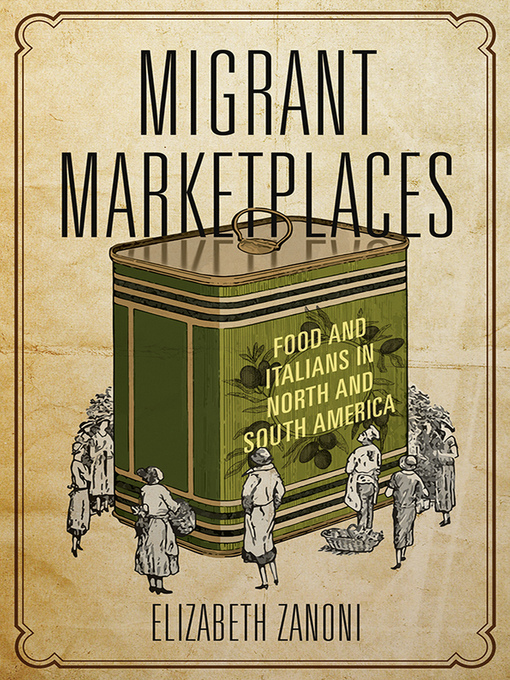Elizabeth Zanoni provides a cutting-edge comparative look at Italian people and products on the move between 1880 and 1940. Concentrating on foodstuffs—a trade dominated by Italian entrepreneurs in New York and Buenos Aires—Zanoni reveals how consumption of these increasingly global imports affected consumer habits and identities and sparked changing and competing connections between gender, nationality, and ethnicity. Women in particular—by tradition tasked with buying and preparing food—had complex interactions that influenced both global trade and their community economies. Zanoni conveys the complicated and often fraught values and meanings that surrounded food, meals, and shopping.
A groundbreaking interdisciplinary study, Migrant Marketplaces offers a new perspective on the linkages between migration and trade that helped define globalization in the late nineteenth and early twentieth centuries.
| Cover TItle Copyright Contents Acknowledgments Introduction 1. Manly Markets in le due Americhe, 1880–1914 2. Race and Trade Policies in Migrant Marketplaces, 1880–1914 3. Tipo Italiano: The Production and Sale of Italian-Style Goods, 1880–1914 4. "Pro Patria": Women and the Normalization of Migrant Consumption during World War I 5. Reorienting Migrant Marketplaces in le due Americhe during the Interwar Years 6. Fascism and the Competition for Migrant Consumers, 1922–1940 Epilogue Notes Bibliography Index |"Migrant Marketplaces is a solidly researched, well-written book that offers a fresh perspective on Italian food and foodways via the histories of Italian migrant communities in North and South America . . . . Zanoni's work adds a new dimension to pioneering studies on migration, gender, and food. " —H-Net Reviews"Elizabeth Zanoni's innovative 'migrant marketplace' framework offers an invaluable global perspective on migrant cuisines and commodity networks through the lens of gender. Challenging scornful views of Italian foods in the Americas as inauthentic products of assimilation, she reveals them instead to be strategic and creative responses to transnational family life."—Jeffrey M. Pilcher, author of Planet Taco: A Global History of Mexican Food
"Enriching our understanding of how migrant contributions and experiences are shaped in historically specific ways by national and transnational policy, food, consumerism, and ideas about race and gender, Zanoni's book will resonate for many scholars and students who study these topics in the Americas and beyond." —Italian American Review
|Elizabeth Zanoni is an assistant professor of history at Old Dominion University.
